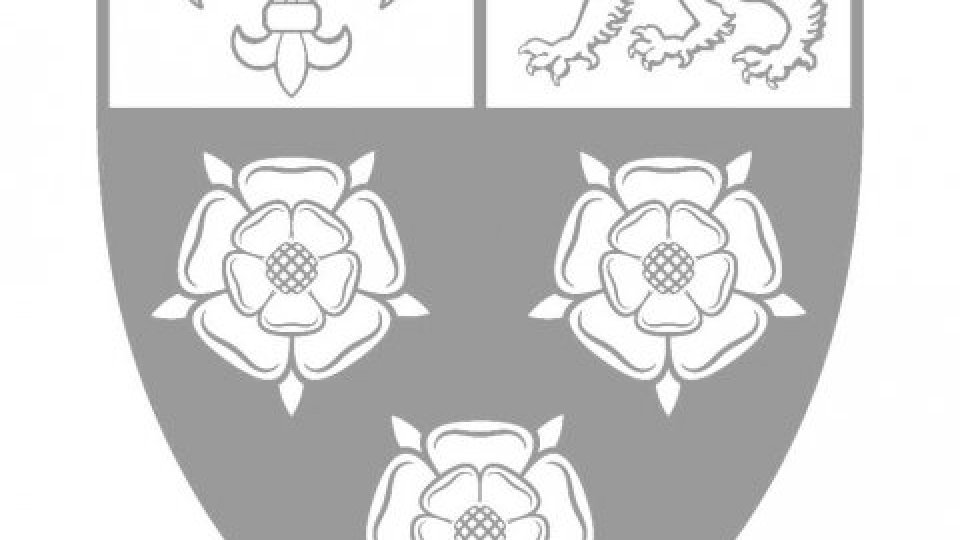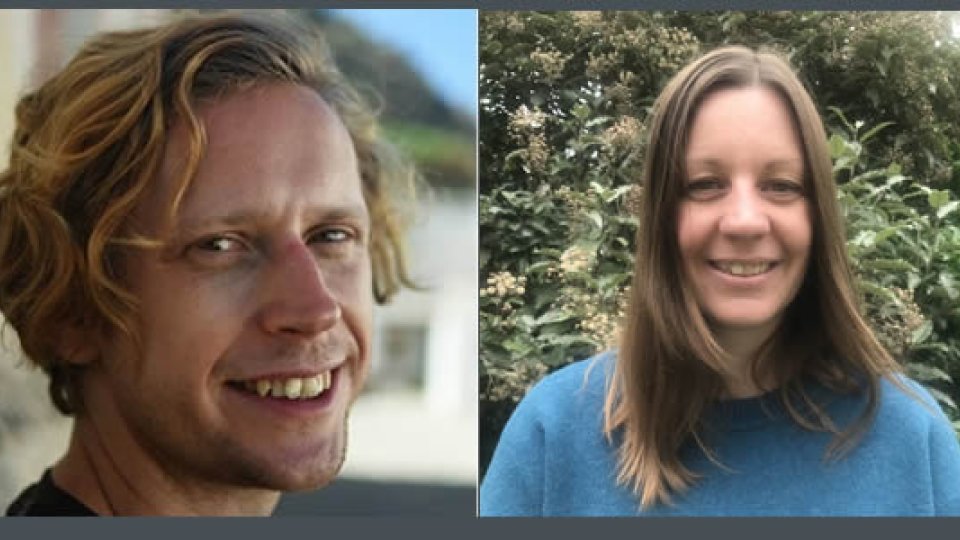Everyone is very welcome to join and participate in the events hosted by the King's College Silk Roads Programme, please add your details here to join our mailing list or get in touch. We do not record the seminars or mini-conferences as you will be hearing about brand- new, often unpublished research and we hope to facilitate questions and discussion between the audience and speakers.
Upcoming Events
Info! No event listed for this page.
Recent Events
- Cities: TugunbulakFriday
31-01-2025 @ 14:00Platform | ZoomID: Please Register on "Join Meeting" Passcode: NoneCities: Tugunbulak (Michael Frachetti and Farhad Maksudov) - Cities: Church of the EastFriday
07-02-2025 @ 14:00Platform | Keynes Hall (King's College) and OnlineID: Please Register on "Join Meeting" Passcode: NoneOutreach in cities and on the steppes: the Church of the East in Central Asia and China
Abstract
Connected by the ‘Silk Roads’, the Church of the East spread from its patriarchate in Mesopotamia to the T’ang capital at Chang’an. No single empire defined its framework, but it came into contact with a plethora of religions: Shamanism, Zoroastrianism, Buddhism, Taoism, Manichaeism, Judaism, and Islam. Its vast dioceses, encompassing an array of peoples that included Iranian, Syriac, Turkic, Mongolian and Chinese speakers, had a presence in Central and East Asia that spanned from the fifth to the fourteenth centuries. Bishoprics and metropolitanates established in major cities, notably in Merv, Samarkand, Herat and Kashgar, probably served as hubs for outreach activities amongst the nomadic tribes, including the Kerait, Naiman and Ongut, who inhabited the vast steppe-lands of Central and Inner Asia. The recognition by the Church of the East of its urban and nomadic dimensions was reflected in the designations of metropolitanates, which either named cities or used ethnic designations.
About the speaker
Dr. Erica C.D. Hunter is Affiliated Researcher at the Faculty of Asian and Middle Eastern Studies, University of Cambridge. She was Senior Lecturer in Eastern Christianity, Dept. of History, Religions and Philosophies, SOAS (2000-2020). Her research interests focus on the outreach of the Church of the East in Central Asia, Afghanistan and China. She was Principal Investigator for the AHRC-funded project ‘The Christian Library from Turfan’ (2008-2011) which catalogued 500+ Syriac manuscripts from Turfan. [Erica C D Hunter and Mark Dickens, Syriac Texts from the Berlin Turfan Collection (Stuttgart: Steiner Verlag, 2014). Her second AHRC-funded project, ‘The transmission of Christian texts from Turfan’ (2012-2015) culminated in Erica C.D. Hunter & J.F. Coakley, A Syriac service-book from Turfan. Museum für Asiatische Kunst, Berlin MS MIK III 45 [Berliner Turfantexte XXXIX] (Turnhout: Brepols, 2017]. - Cities: KarakorumFriday
14-02-2025 @ 14:00Platform | Keynes Hall (King's College) and OnlineID: Please Register on "Join Meeting" Passcode: NoneThe economics of building cities in the steppes: Karakorum, the former capital of the Mongol World Empire
Abstract
In the 1230s, Ögödei Khan, the son and successor of Chinggis Khan, built Karakorum, the first capital of the Mongol World Empire. This fact is well documented through written sources. The city was constructed from scratch and housed a diverse population. Karakorum thus provides a unique case study of imperial city planning in a mobile pastoralist environment. Through the lens of economic theory, the talk will offer perspectives on how the Great Khans were able to build this city in the steppe. To answer this question, we need to consider the wider hinterland of Karakorum, as outlying production facilities not only supplied the city with building materials but also with food. However, economic theory alone falls short of explaining the rationale behind the city’s construction; social and cultural dimensions must also be addressed to provide a more comprehensive picture that goes beyond functional technicalities. Drawing on Pierre Bourdieu’s theory of economic, cultural, and social capital, a deeper understanding of the status Karakorum might have held in the imperial agenda of the Great Khans will be achieved.
Dr. Susanne Reichert is an archaeologist specialising in the study of the Mongol Empire. She completed her Ph.D. at the University of Bonn in 2017 with a dissertation on craft production in Karakorum, the first capital of the Mongol Empire. Her research, including extensive fieldwork at sites like Karakorum and Khar Khul Khaany Balgas in Mongolia, focuses on city-hinterland relations and the foundations of pastoralist cities. Dr. Reichert has also explored cross-cultural comparisons between the Carolingian and Mongol empires, examining their economies, ideologies, and administration. She has held a Feodor Lynen Fellowship and was a visiting researcher at the University of Michigan. Recent books include "A Layered History of Karakorum" and "Craft Production in the Mongol Empire." (Bonn). In 2023, her contributions to Mongolian archaeology were recognized with the Medal of Friendship by Mongolia’s president. Dr. Reichert's research continues to illuminate the complexities of urbanism and craft production in the Mongol Empire, enhancing understanding of interactions between nomadic and settled communities. - Qaraqorum on the Silk Roads: from imperial capital to provincial townMonday
24-02-2025 @ 17:00Platform | Keynes Hall (King's) and ZoomID: Please Register on "Join Meeting" Passcode: NoneQaraqorum on the Silk Roads: from imperial capital to provincial town
This lecture examines the transformation of Qaraqorum, the capital of the United Mongol Empire until 1260, following its loss of imperial status due to Qubilai Khan’s decision to relocate the capital from Mongolia to North China. This shift relegated Qaraqorum from a central political hub to a peripheral borderland. Despite retaining its role as the economic and administrative center of Mongolia—reorganized in 1307 as the Yuan Lingbei province—the city ceased to function as a political nucleus and instead evolved into a military stronghold, and later into a provincial town.
Drawing on 14th-century inscriptions in Chinese, Mongolian, and Persian, as well as an extensive range of Chinese and Muslim sources, this presentation investigates the city’s subsistence strategies. It explores the role of local resources—including pastoralism, agriculture, hunting, and fishing—in sustaining Qaraqorum’s economy, while also considering the extent to which the city depended on external supplies, whether through relief provisions, salaries, or trade. Additionally, the lecture seeks to reconstruct aspects of communal life in 14th-century Qaraqorum, with a particular focus on its sedentary population. The final section situates Qaraqorum within the broader landscape of medieval steppe cities in Mongolia, whose functions and long-term viability remain insufficiently understood.
About the speaker
Professor Michal Biran is the Max and Sophie Mydans Foundation Professor in the Humanities at the Hebrew University of Jerusalem, a member of the Israel Academy of Science and Humanities. Since October 2021, she has served as head of the Institute of Asian and African Study at HUJI. She is a historian of Inner Asia, imperial China and the medieval Islamic world. She teaches in the departments of Asian Studies and Islamic and Middle Eastern Studies at the Hebrew University of Jerusalem. Prof. Biran has published extensively on the Mongol Empire, Mongol and pre-Mongol Central Asia (especially the Qara Khitai and the Chaghadaids), cross-cultural contacts between China, nomadic empires and the Muslim world, comparative study of empires, nomadic culture, migrations and mobility, and Ilkhanid Baghdad.
Prof. Biran has authored or edited 12 books and volumes and authored dozens of articles. She has recently completed editing The Cambridge History of the Mongol Empire along with Hodong Kim. - Cities: ThailandFriday
28-02-2025 @ 14:00Platform | Audit Room (King's College) and onlineID: Please Register on "Join Meeting" Passcode: NoneThe mandala as a method of governance in pre-modern cities of Southeast Asia: Case studies from 7th to 9th Century Thailand
Abstract
What form of political organization did early urban centres take in Southeast Asia? Most scholars propose the mandala concept or galactic polity. The mandala system comprises of a political centre whose power and influence spreads outwards in an ever-increasing circle. At its heart presides the cakravartin, an idealised universal ruler which in Buddhist cosmology becomes associated with the Dharmaraja, a Buddhist monarch who governs in accordance with the principles of this religion. The geographical and political limits of a mandala were constantly in flux, expanding and contracting over time depending on the relative strength or weakness of the centre and its ruler. We have clear evidence for this concept of political organisation in the Ayutthaya Kingdom (1351–1767 CE) of Central Thailand and its continued use into the Rattanakosin period (1782 – present) under the reigns of the Bangkok-based Chakri Dynasty kings of the early to mid-19th century. However, we are less certain about earlier periods. Was it already in place in the mid to late first millennium CE when early Hindu and Buddhist proto-states began to emerge in Southeast Asia? Or was it a later development? This talk tests this theory against the available archaeological evidence of 7th to 9th century CE Thailand to see to what extent it is possible to reconstruct the political landscape of the time.
About the speaker
Stephen A. Murphy is Pratapaditya Pal Senior Lecturer in Curating and Museology of Asian Art at the Department of History of Art and Archaeology, SOAS, University of London. He specializes in archaeology of Buddhism and Hinduism in first millennium CE Southeast Asia with a focus on Thailand and Laos. He has a particular interest in the 7th to 9th centuries CE as well as maritime connectivity between Southeast Asian cultures, Tang China, and the Indian Ocean world in general. His museological focus engages with issues of restitution and curation of Asian art. His new book Buddhist Landscapes: Art and Archaeology of the Khorat Plateau, 7th to 11th Centuries (NUS Press 2024) explores the development of this religion in northeast Thailand and Central Laos. - Cities: IsfahanFriday
14-03-2025 @ 14:00Urban Experience in Early Modern Iran: A Daylong Journey in Safavid Isfahan
Early modern Isfahan was a cosmopolitan city that offered a staggering array of pleasures to its visitors and inhabitants. Based on my recently published book, Isfahan: Architecture and Urban Experience in Early Modern Iran (Penn State University Press, 2024), this talk examines the city’s topography of leisure through the lens of the “Guide for Strolling in Isfahan,” a literary composition penned around 1660, which offers instructions for a one-day solitary excursion in the Safavid capital. Beginning at dawn, the recommended itinerary includes stops at several coffeehouses, a hookah stall, a royal palace, and the city’s new congregational mosque, among other places; the whirlwind urban journey culminates in a nocturnal tryst with a courtesan in the pleasure district of Isfahan. Tracing the itinerary of the tour on the map of the city, this talk analyzes the “Guide for Strolling in Isfahan” as a literary artifact and spatial representation, revealing how seventeenth-century Isfahan—with its markets, coffeehouses, and urban spaces—gave rise to novel modes of experiencing and imagining the city.
About the speaker
Farshid Emami (Ph.D., Harvard University, 2017) is an assistant professor in the Department of Art History at Rice University. He specializes in the history of architecture, urbanism, and the arts in the Islamic lands, with a focus on the early modern period and particularly Safavid Iran. His scholarly interests include transregional histories of early modernity, social experiences of architecture and urban spaces, intersections of architecture and literature, and patterns of cross-cultural exchange in the Persianate lands and beyond. He is the author of Isfahan: Architecture and Urban Experience in Early Modern Iran (Penn State University Press, 2024). In addition to his publications on Safavid art and architecture, he has written on topics such as lithography in nineteenth-century Iran and modernist architecture and urbanism in the Middle East.

